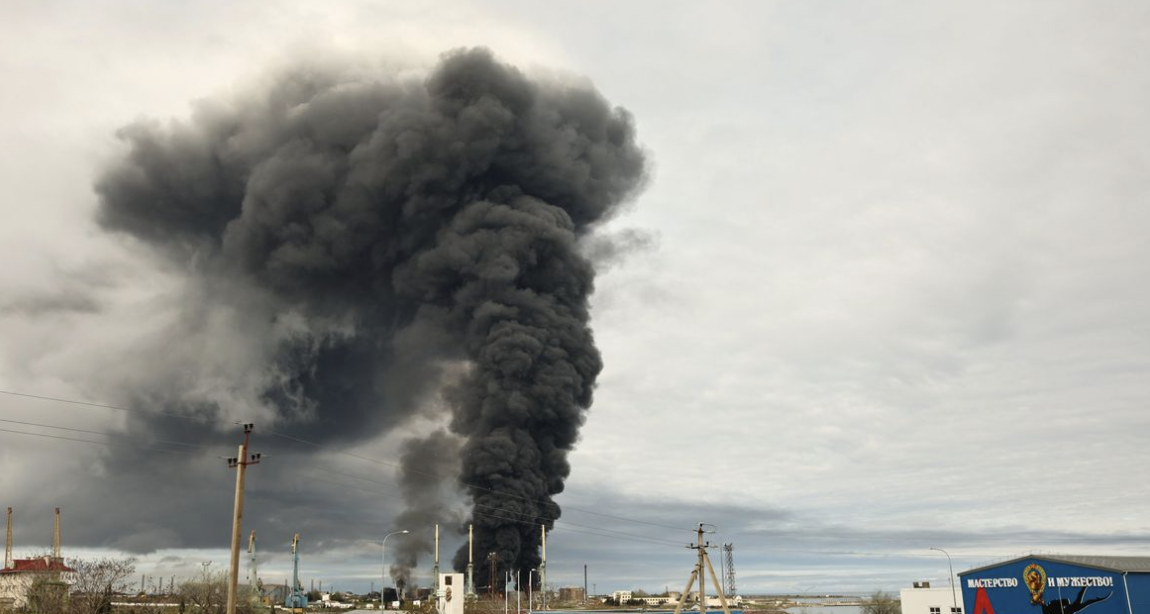In 2021, a strange explosion at a gunpowder mill in Louisiana destroyed the facilities, highlighting a severe vulnerability in America’s military supply chain that renders us all less safe in the face of escalating threats from China and other adversaries.
As the Wall Street Journal pointed out on Wednesday, “Fewer weapons manufacturers, shortages and ‘single source’ contractors limit the Pentagon’s ability to ramp up production—including when the sole maker of a crucial type of gunpowder stopped producing.”
The explosion happened two years ago at a gunpowder mill in Minden, Louisiana, when “an errant spark” destroyed the entire facility. The business is used by the Department of Defense to manufacture bullets, mortar shells, artillery rounds, and Tomahawk missiles.
The company manufactured black powder.
While explosives are an ancient form of munitions, having been used during the Revolutionary and Civil Wars, they also have modern military applications. Other chemicals cannot be used in its stead for these applications.
Exacerbating the situation? The Louisiana plant was the only one in North America.
Despite the fact that the explosion that destroyed the facility occurred two years ago, the factory is still shut down, not producing the critical material, and unable to provide the much-needed supplies to the Pentagon.
The lack of a backup source to deliver the chemical to our military has been a rising issue for years as the US military supply chain has contracted to a fewer and smaller number of firms.
“Military suppliers consolidated at the Cold War’s end, under pressure to reduce defense costs and streamline the nation’s industrial base,” the Journal reported. “Over the past three decades, the number of fixed-wing aircraft suppliers in the U.S. has declined from eight to three. During the same period, major surface ship producers fell from eight to two, and today, only three American companies supply over 90% of the Pentagon’s missile stockpile.”
“Lower-tier defense firms are often the sole maker of vital parts — such as black powder — and a single crisis can bring production to a standstill,” the Journal warned.
The black powder plant in Louisiana experienced a lone problem.
It all points to a major problem with America’s military readiness. America’s military readiness problems are being exacerbated by Joe Biden’s continued shipment of armaments and equipment to Ukraine in order for that country to fight Russian invaders.
As it stands, the surplus stocks that should be utilized to keep America safe are depleting, and the country’s capacity to produce more cannot be swiftly or easily replaced.
One can only imagine what would happen if America was forced to ramp up in an emergency for a major conflict.
Of course, the problem isn’t only a lack of manufacturing. There is also a scarcity of competent workers to keep the plants running.
“Chokepoints are one of a number of weaknesses in the U.S. military’s supply chains. Others include a lack of skilled workers in casting and forging, shortages of infrastructure for battery technology and periodic shortages of advanced microchips,” the Journal added.
This also implies that many of the country’s supplies are purchased from foreign firms, putting the United States at the mercy of outsiders.
The document laments the fact that the United States military is “increasingly reliant on a smaller number of contractors for these critical capabilities,” as Halimah Najieb-Locke, deputy assistant secretary of defense in charge of the industrial base, stated at a recent seminar.
“That impacts everybody’s ability to ramp production,” Najieb-Locke added.
Of course, this isn’t a new issue. It all started in the 1990s, when Bill Clinton’s Secretary of Defense, Les Aspin, began dismantling the supply chain in order to save money and gain greater influence over the manufacturers. During the first round of consolidations, the industry went from dozens of large contractors to only five. It has continued to contract since then. According to the Journal, the defense industry has dropped from 69,000 smaller contractors in 2016 to only 55,000 by 2021.
All of this adds up to a significant dilemma for the country’s national security.
To the disgust of Americans, Joe Biden and his government are not attempting to solve the problem, as they usually do. Instead, the administration’s failure to act is exacerbating the situation.


